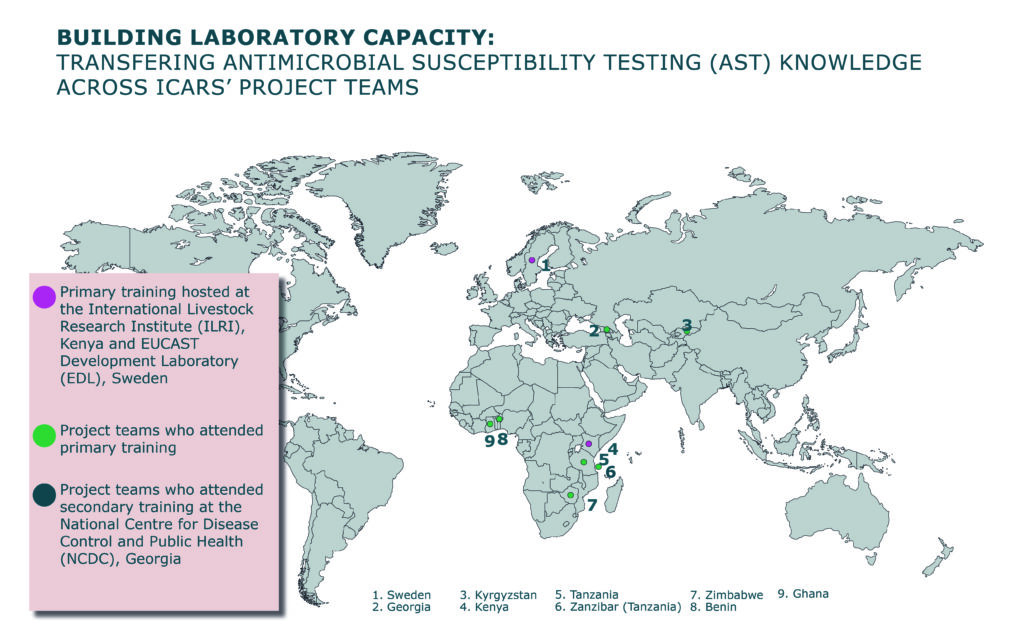On 26-28 April 2023, 11 participants from ICARS’ projects attended a workshop on antimicrobial susceptibility testing (AST) at the International Livestock Research Institute (ILRI) in Nairobi, Kenya. During the three-day workshop, course participants learnt about best practices in AST including reference methods, disk diffusion testing using the EUCAST methodology, quality control techniques, and troubleshooting skills.
Why Antimicrobial Susceptibility Testing?
Antimicrobial Susceptibility Testing (AST) of microorganisms is essential for determining which antimicrobials could be effective treatment options in human and veterinary medicine. It is essential both for targeted treatment as well as for empirical treatment. This is increasingly true with growing antimicrobial resistance (AMR). Furthermore, surveillance of AMR development requires good quality data. However, continuous delivery of accurate AST results has proven difficult for routine laboratories all over the world.
Building a Centre of Excellence
The April workshop was part of ICARS’ collaborative project with ILRI and the EUCAST Development Laboratory (EDL) working to build a centre of excellence for AST at ILRI. Part of this initiative includes regular training on AST to clinical microbiologists and technicians from other laboratories as well as provision of technical support for troubleshooting on an ongoing basis.
Sharing knowledge
Already, the training has contributed to a growing network of knowledge sharing with positive feedback from the participants. ILRI has hosted training with participants from ICARS’ projects in Benin, Ghana, Kenya, Tanzania, Zanzibar and Zimbabwe. The ILRI training programme has also been supplemented by a training of trainers at EDL in Sweden, which has trained individuals from Georgia and from ILRI. The team in Georgia later transferred the training to project teams in Kyrgyzstan and other laboratories in Georgia.
“Thanks to this training I now understand the significance of standardised procedures in ensuring reliable and consistent results. Upon returning to my laboratory, I am eager to collaborate with my team to implement a standardised protocol for AST. This will ensure the consistency and reproducibility of our antimicrobial susceptibility results. Furthermore, I will be an ambassador of the EUCAST methodology, committed to working with relevant authorities to promote its adoption across clinical laboratories in my country.” – Kevin Mael Sintondji, Microbiologist, Research Unit in Applied Microbiology and Pharmacology of natural substances (URMAPha), Benin
To learn more about the training, watch the webinar series on antimicrobial susceptibility testing, organised by ILRI, EDL and ICARS.


